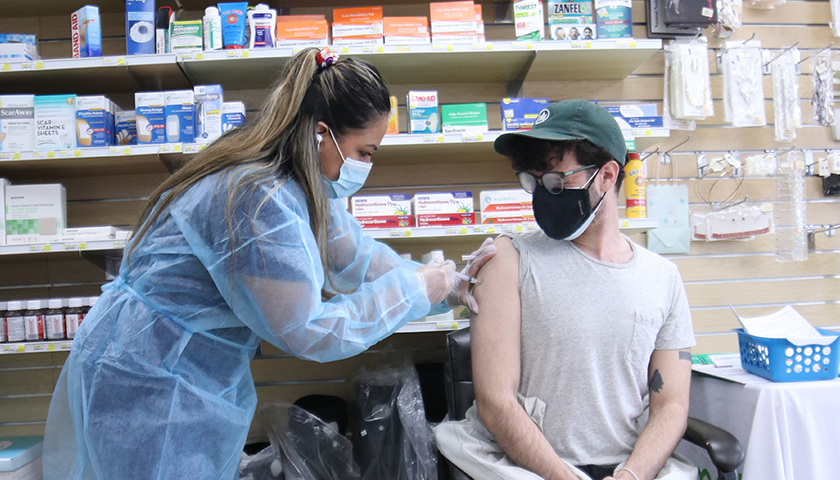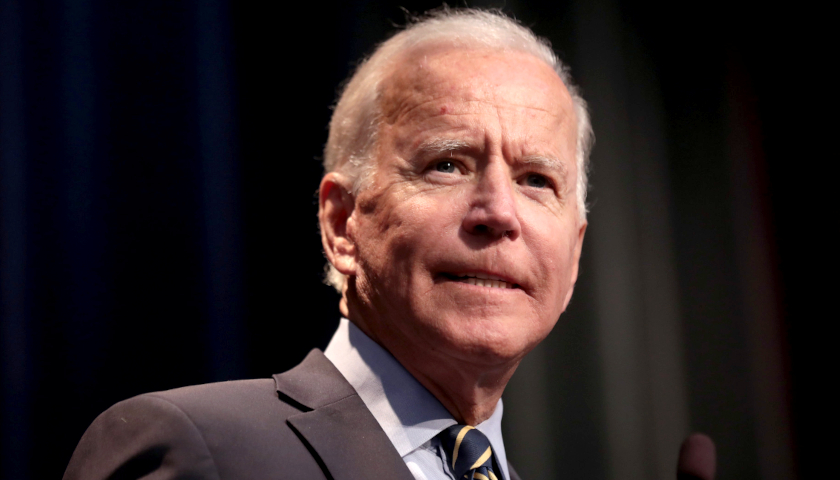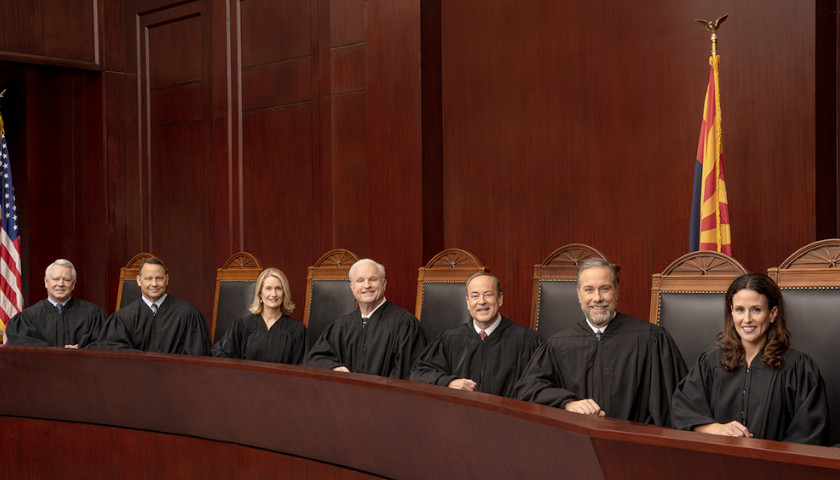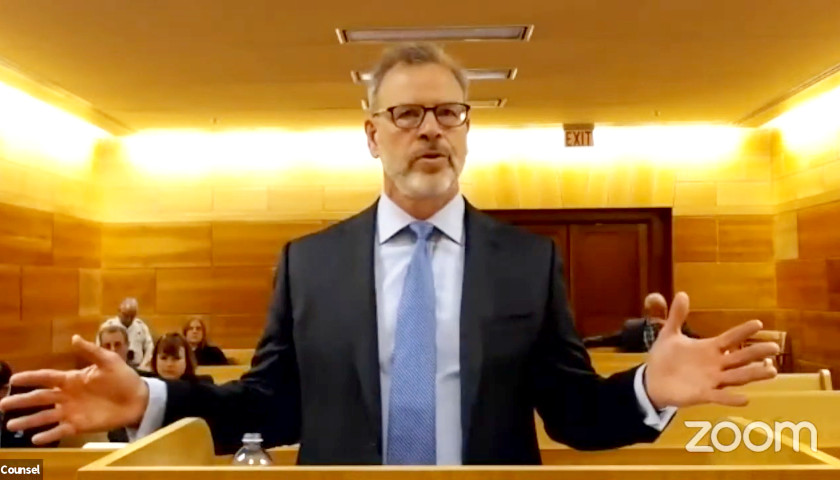Of the three companies producing COVID vaccines in the U.S., only one – Pfizer Inc. – has yet gained full FDA approval, and at least some Pfizer vaccines currently being administered in Pennsylvania come from inventory that predates that approval.
On August 23, the U.S. Food and Drug Administration (FDA) approved a Pfizer shot to prevent severe COVID-19 cases. Like Johnson & Johnson and Moderna, Pfizer had been a manufacturing vaccine to fight the coronavirus under federal emergency-use authorization (EUA). The injection produced by Pfizer under EUA is known as Pfizer “BioNTech” and the company’s post-FDA approval vaccine is called “Comirnaty” (pronounced kuh-MUR-nit-ee).
As The Ohio Star reported last week, Pfizer has said it has continued distributing the original EUA-approved product. While Pfizer did not indicate to the newspaper whether it had begun shipping any Comirnaty units, The Star ascertained that OhioHealth, one of the Buckeye State’s largest hospital conglomerates, still only distributes the version of the shot labeled Pfizer BioNTech.
Based on conversations The Pennsylvania Daily Star had this week with several pharmacies, delivery of the EUA version continues in Pennsylvania.
Staff at Giant Pharmacy 6447 in Harrisburg, Hulmeville Road Pharmacy in Bensalem and LaCon’s Pharmacy in Norristown all indicated that the Pfizer coronavirus vaccine they now carry is BioNTech, the version manufactured prior to FDA approval in late August.
The Daily Star also asked Pennsylvania Department of Health via email about whether the Comirnaty version is being distributed in Pennsylvania, but the department merely responded:
The Pfizer vaccine (Comirnaty) is fully approved by the FDA for adults (16+), and under emergency authorization use for children 12-15 years old. Meanwhile, the Pfizer pediatric vaccine is available for children 5-11 years old under emergency authorization use.
Pfizer has said that the vaccines labeled Pfizer BioNTech and Comirnaty “have the same formulation and can be used interchangeably” and the FDA has reportedly echoed that assertion.
But in an online statement, the FDA has noted “the products are legally distinct.”
“I do not know of a chemical or biologic distinction, but there is clearly a legal distinction,” Jane Orient, executive director of the Association of American Physicians and Surgeons, told The Daily Star via email. She said that especially high genetic-sequencing standards apply to FDA-approved products.
Legal differences between the EUA-sanctioned vaccine and the FDA-approved one are particularly significant in Ohio, where a new law stipulates that “a public school or state institution of higher education shall not . . . [r]equire an individual to receive a vaccine for which the United States Food and Drug Administration has not granted full approval.” Ohio’s public universities all require students to receive COVID vaccines. And some experts believe a lack of FDA approval only further burdens President Joe Biden’s argument that many American workers can be coerced to receive a vaccine.
R. Davis Younts, an attorney based in Lemoyne, Pennsylvania who represents over 60 people asserting their right not to take the vaccine, says that federal law on informed consent guarantees no one may be commanded to take substances that only have EUA-level sanction.
“I believe that the lack of availability of FDA-approved vaccines is a significant legal issue that makes it essentially illegal for it to be mandated,” Younts told the Pennsylvania Daily Star in an email. Most of his clients in vaccine-mandate cases are members of the Armed Forces.
In August, Gov. Tom Wolf (D) announced a COVID-vaccine mandate for state employees in public healthcare institutions and high-risk care facilities such as nursing homes to receive full COVID-19 vaccination. All those who did not get vaccinated by September 7 have been required to receive weekly COVID tests. All new hires from outside these workplaces coming in after September 7 have been required to get vaccinated before starting work. The commonwealth estimated that these requirements would affect about 25,000 workers.
In September, Biden announced a national vaccine mandate that would apply to all federal employees and contractors as well as healthcare employees at institutions that receive Medicaid or Medicare funding. The federal government also has instructed companies with more than 100 workers to instruct those employees to get the coronavirus vaccine or to show a negative test result. Wolf has applauded the federal mandate.
Smaller jurisdictions and private entities within the Keystone State have also imposed vaccine requirements. Earlier this week, the Philadelphia Department of Public Health declared that, beginning on January 3, Philadelphia bars and restaurants can only permit fully COVID-vaccinated patrons to enter. Major hospital systems in Pennsylvania have also pledged to require vaccinations for their staff.
Many private colleges and universities have been requiring their students to receive vaccinations, though Pennsylvania’s state university system has said its schools cannot mandate that students get the shot without the legislature approving such a mandate.
There are currently no public requirements for Pennsylvania’s school children to receive the coronavirus vaccine. The state does require vaccinations for certain other ailments including polio, measles, hepatitis B. On Monday, the Republican-controlled Pennsylvania Senate voted 28 to 21 for a bill sponsored by Sen. Michele Brooks (R-Meadville) which would bar schools from forcing children to get the COVID shot in order to attend school classes.
Where governmental institutions are concerned, many medical and legal experts agree with Younts that the government cannot and should not require Americans to receive the coronavirus vaccine, though not all believe the FDA-approval issue should be the main focus.
“I think the lack of [FDA] approval has some impact at the margin,” Jeffrey A. Singer, a fellow of both the D.C.-based Cato Institute and the American College of Surgeons, told The Daily Star. “But the main problem is that the federal government lacks the constitutional authority to mandate vaccination.… I personally believe it is an act of physical assault for the state to compel a person to get vaccinated.”
Luke Wake, an attorney with the Sacramento, California-based Pacific Legal Foundation, agreed, finding it particularly troubling that the White House wants to simply impose its mandate through the Occupational Safety and Health Administration and forgo congressional authorization.
“Agencies are creatures of law,” he said. “They only have the powers that Congress has vested on them.”
In terms of individuals’ willingness to get vaccinated voluntarily, some observers think FDA approval may only accomplish so much.
“When looking at Pennsylvania’s vaccine data, there was no significant increase in the number of people receiving vaccines after the Pfizer vaccine received FDA approval,” said Myla Merkel, media coordinator for the Pennsylvania Medical Society. “So it doesn’t appear people are only willing to receive the FDA-approved vaccines over the emergency use authorization.
– – –
Bradley Vasoli is managing editor of The Pennsylvania Daily Star. Follow Brad on Twitter at @BVasoli. Email tips to [email protected].








